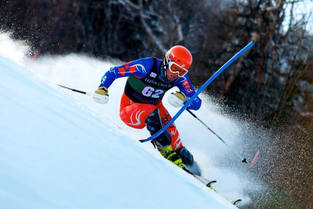Sam's Journals: An Introduction to Athletes' Journals
“Writing for me is a way to process what is buzzing around in my head. When I put my thoughts on paper, I begin to see things more clearly.”
––Sam Morse, ski racer
--from Independent Teacher Magazine
 Sam Morse, US Ski Team
Sam Morse, US Ski Team
"Hurtling down Sugarloaf's famed Narrow Gauge Trail, ski racer Sam Morse drops 2,430 vertical feet in a little over a minute. The 16-year-old, 200-pounder reaches speeds in excess of 60 mph on the mile-and-a-half-long World Cup downhill course. Sam’s parents, coaches, and teammates support his pursuit of podium gold . . . so does his writing."
–For the full article, click on Sam's Journals from Independent Teacher Magazine.
–For the full article, click on Sam's Journals from Independent Teacher Magazine.
Journaling: More Than Words
"...athletes who journal become more engaged, self-aware and mentally sharp,
less stressed and better able to cope both on the mat and off."
--Dr. Richard Kent
from The Cheer Professional

Roisin McGettigan, 2003 Olympian (r)
Journal writing ... served as a motivating factor for Roisin McGettigan, a 2003 track and field Olympian for Ireland. She credits the practice of keeping a journal with helping her take ownership of her athletic pursuits. "When you record your training, it crosses the line between being casual or serious about the sport," she says. "I was able to track my progress, learn what worked and what didn’t. I could figure out why I was tired and see if I over- or under-estimated my training." When Alexandra Allred made the first U.S. Olympic women’s bobsled team in 1994, she expected to train hard, eat healthy food and get plenty of sleep. What she didn’t expect was that she’d become an enthusiastic journal keeper.
Richard Kent, Ph.D., professor and director emeritus of the Maine Writing Project at the College of Education and Human Development, University of Maine, has used writing techniques with athletes since the early 1980s. He notes that athletes who journal become more engaged, self-aware and mentally sharp, less stressed and better able to cope both on the mat and off. “It’s wildly interesting that athletes, when given opportunity and guidance, explore their own thinking and gain knowledge of their sport," says Kent, who is also author of Writing on the Bus. ––Phyllis Hanlon, "Journaling: More Than Words?" The Cheer Professional
